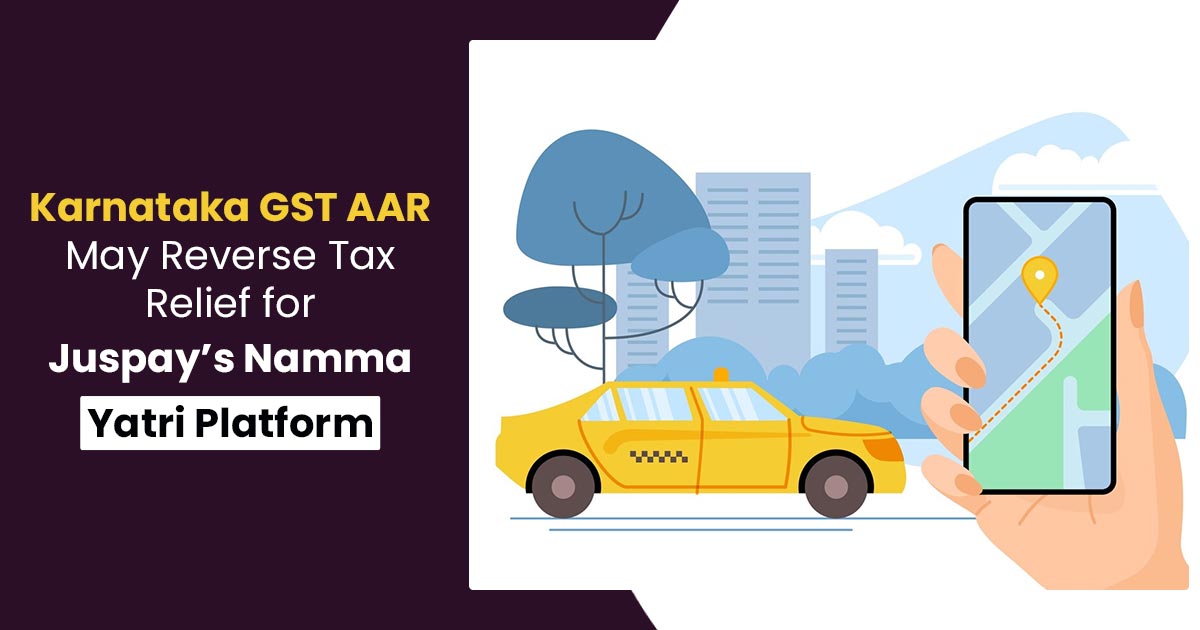
Juspay Technologies has received a message from the Karnataka Authority for Advance Ruling (AAR) indicating that they might change a previous decision. This earlier ruling stated that Juspay’s Namma Yatri service, which helps people book auto-rickshaws, did not need to charge Goods and Services Tax (GST) for rides booked through their platform.
Bengaluru-based company Juspay has decided to separate its cab-hailing service and make it a part of a new subsidiary called Moving Tech Innovations.
The AAR, explained GST applicability, held on September 15, 2023, that Namma Yatri was not obligated to collect GST on auto-rickshaw fares as it followed a software-as-a-service (SaaS) model. The platform under the same model collects a fixed subscription fee from auto-rickshaw drivers to utilise its services, and not a per-ride commission. A 5% GST on the fares has been imposed by the Cab-hailing platforms like Ola and Uber.
AAR, on June 19, mentioned that it has been discovered from Moving Tech’s application that the company acquired Namma Yatri as a “going concern.” The authority expressed that it could declare the September 2023 ruling void for the reason that Juspay had received it via suppressing/misrepresenting material facts.
Furthermore, the former ruling was binding only on the applicant who had pursued it (Juspay, which no longer owns Namma Yatri) and the related jurisdictional GST officials.
For Juspay and Moving Tech to appear and oppose the assessment of AAR, if they desire to do so, a hearing on June 27 has been fixed as stated in the notice.
A GST official in Karnataka affirmed sending the notice. The emails asking for comments are not answered by Juspay and Namma.
The AAR move is infrequent, probably unprecedented, and some GST practitioners have witnessed.
AAR does not have the power to recall its order, though on appeal or via a review by higher authorities, these reversals can take place.
On issuance of the notice before Juspay, it cited that it is vague for the facts that it alleges were concealed or misrepresented. The same seems to be inappropriate to negate a business-friendly provision furnished by the Parliament.
Development has arrived when the app based ride hailing services like Uber, Ola, and Rapido are continuing struggles to settle their discrepancies with the Central Board of Indirect Taxes & Customs (CBIC) towards the GST applicability on rides booked via ecommerce platforms, post Uber India raised concerns for the absence of uniformity and a level playing field.
To solve the concerns of GST liability for e-commerce operators, CBIC has been working to discover a solution. Inputs have been collected to discover the way of the vexed problem in a meeting of the CBIC chairman and other top officials with the aggregators.
Karnataka High Court order bound CBIC seeking it to decide on Uber India’s representations concerning the subject, post hearing all stakeholders.
In the previous year, Uber approached the HC asking for clarity on Section 9(5) of the CGST Act that deals with the tax applicability on e-commerce platforms and whether the e-commerce operators proposing passenger transportation services should file GST under this provision.
Ride-hailing platforms have paused innovation as well as fresh investments due to the desire for transparency on the GST rates applicable under different business models for taxi and auto-rickshaw rides.